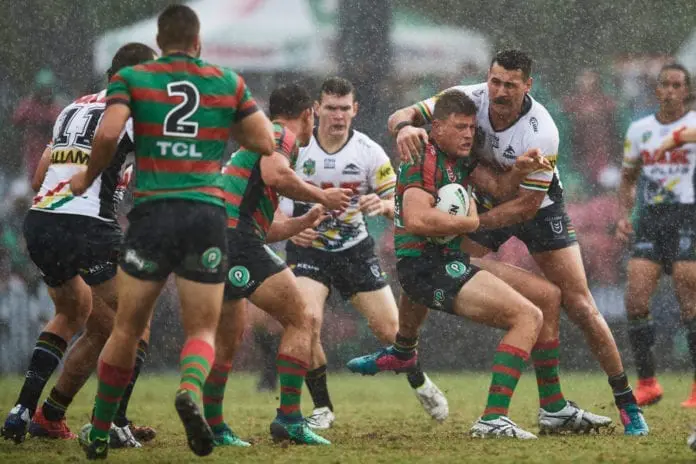The NRL has added an $100,000 incentive for clubs to take the pre-season trial games seriously, but will they?
All NRL clubs plus England's St Helens from the Super League will be in the running for the prize which will be awarded to the team who finishes top of the table.
In previous years gone by, these games were typically a time to experiment with new combinations and was a period to give young and/or emerging talent an opportunity to showcase their ability.

The squad size will be capped at 28 players for their week one matches and 26 players for week two matches.
The incoming changes to the trial format will test whether coaches prioritise playing youngsters and testing new combinations, or whether they'll push for first place.
Ex-NRL star Wendell Sailor thinks not much will change stating ‘you're resting your big dogs.' This will more than likely to be the case with some top players or players who may be more injury prone than others.
However, even if clubs don't get on board with taking the competition super seriously, there will still always be a winner. A winning team could galvanise around pre-season success and put players in a great frame of mind coming into the NRL season.

Testing new positions and new combinations is going to likely be a staple despite the cash prize. Clubs like the Bulldogs or the Tigers however could really benefit from this competition.
Both sides have made big additions and wholesale changes at the club, so an opportunity to win money and test the team's new chemistry together could be highly beneficial.
At the end of the day only one team out of 18 will benefit from the incentives. Teams with poorer squads know their chances of winning are slim and are more likely to focus on building chemistry and building partnerships.
Top sides mostly know their best team and best players, and usually are financially responsible with the $100,000 not really changing a lot. But teams like the Bulldogs and Tigers this season could be the frontrunners and beneficiaries of the Pre-Season Challenge.






















